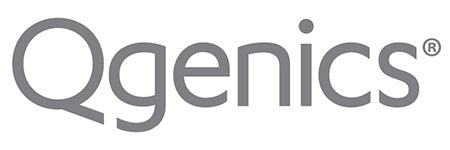High Triglycerides & Cholesterol
What are Triglycerides?
Triglycerides are a type of fat (lipid) found in your blood. They are the main component of fat cells. Carbohydrates (sugars) convert into triglycerides.
In Insulin Resistance, your blood sugar level is kept high and so there’s more sugar to convert to triglycerides. In turn, your triglycerides become high.
High blood sugar, high triglycerides and high cholesterol levels are in fact three of the many symptoms caused by Metabolic Syndrome (or Insulin Resistance.) They are the result of a metabolic disorder – your cells are not functioning the way they should.
In the past, the theory behind the cause of high levels of triglycerides and cholesterol was incorrect, as you can see from the following excerpt:

“Ever since the daily intake of dietary cholesterol was considered a major causative factor in coronary heart disease, the theory behind this type of thinking has had serious inconsistencies.
First of all, one of the inconsistencies is the fact that 80 percent of those who suffer heart attacks have normal cholesterol in their blood. Secondly, most of the cholesterol that exists in the body comes not from the dietary intake of fatty foods, but rather is produced by the body, and in particular by the liver. Blood levels of cholesterol do not correspond, therefore, to dietary levels of the substance in everyday situations.”
“Moreover, physicians at the Mayo Clinic have shown that the severity of arteriosclerosis [disorders of arteries] is not always related to the levels of serum [liquid part of blood] cholesterol, much less dietary cholesterol. They discovered, for example, that people with low serum cholesterol could have just as severe arteriosclerosis as those with high serum cholesterol.”
Excerpted from Victory Over Diabetes by William H. Philpott, M.D. & Dwight K. Kalita, Ph.D.
In other words, what these physicians found was that you could have high cholesterol levels in the blood stream and have no plaque buildup on the insides of your arteries, or you could have low levels of cholesterol in the blood stream and have serious plaque buildups in your arteries. The understanding of the causes of high triglycerides and cholesterol levels is now very slowly spreading through the medical community:

“Hundreds of scientists are now reporting that an excess of insulin has been linked to high blood pressure, undesirable blood-fat levels and atherosclerosis [the build-up of plaque in the arteries], heart disease, stroke, adult-onset diabetes, and more.”
“Investigation into the relationship of diet to blood sugar, blood fat, and insulin, all overwhelmingly point to the key role that carbohydrate-rich diets and high insulin levels can play in raising your blood-fat levels. And, although major studies report that low-fat diets are failing to help most of us reduce our blood-fat levels, the media continues to act as if low fat is the answer.”
“Certainly, big business appears to play a major role in the low-fat cure-all push. Food manufacturers have found big sales in ‘healthy foods’ that are full of artificial, and often cheaper, ingredients.”
Excerpted from The Carbohydrate Addict’s LifeSpan Program by Richard Heller M.S., Ph.D. & Rachael Heller M.A., M.Ph., Ph.D.

“According to the American Heart Association, substituting carbohydrates for fats may raise triglyceride levels and may decrease HDL (‘good’) cholesterol in some people.
“Decreasing fat and protein in the diet inevitably means increasing carbohydrates. This shifts the metabolism toward fat storage – and higher triglycerides. Not only that, it also leaves the person feeling hungry all the time and subject to blood sugar swings.”
“When the situation is reversed, however – when carbs are cut and replaced with dietary fat and protein – the opposite happens. Blood sugar metabolism normalizes, triglycerides go down, HDL cholesterol goes up, and body fat is lost.”
“All of these benefits occur without hunger and irritability that are trademarks of low-fat, reduced-calorie diet plans.”
Excerpted from Atkins Diabetes Solution by Mary C. Vernon, M.D., C.M.D. & Jacqueline A. Eberstein, R.N.
What Can You do?
You can do something about your high triglycerides by making lifestyle changes in terms of eating a low-carb diet to reduce the amount of sugar and insulin in your body, doing regular exercise, and providing your cells and body with nutritional support.
For diet and exercise suggestions see the “Insulin Resistance” page.
Nutritional Support

“Many of you with evidence of insulin/blood sugar problems already have suffered years of nutritional deficits [shortages].”
“Although it might be possible to overcome this accumulated deficit with diet alone, to regain your health as rapidly as possible means supplements are needed.”
“Vitamins and minerals are crucial for the smooth operation of the thousands of chemical processes that are constantly taking place in your body. You need a constant and adequate supply of them.”
Excerpted from Atkins Diabetes Solution by Mary C. Vernon, M.D., C.M.D. & Jacqueline A. Eberstein, R.N.
High triglycerides can be improved by taking the correct nutritional supplements to support the cells to change the way they operate and improve your metabolism. That means the correct vitamins, minerals, antioxidants, and phytonutrients your cells need. Supplements should be natural, including plant-based nutrition, with ingredients that are specifically selected to address metabolic disorders. They must provide targeted nutrition at the cellular level and simultaneously support all of the body’s systems.
